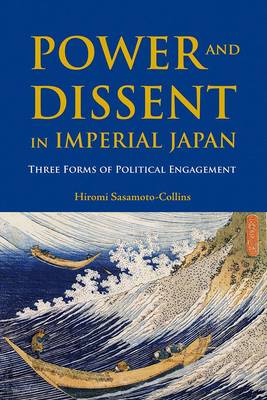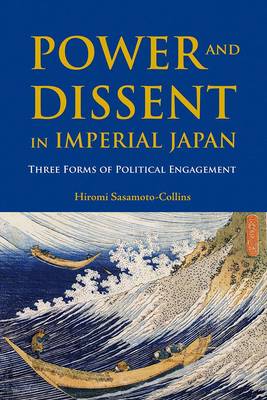
Bedankt voor het vertrouwen het afgelopen jaar! Om jou te bedanken bieden we GRATIS verzending (in België) aan op alles gedurende de hele maand januari.
- Afhalen na 1 uur in een winkel met voorraad
- In januari gratis thuislevering in België
- Ruim aanbod met 7 miljoen producten
Bedankt voor het vertrouwen het afgelopen jaar! Om jou te bedanken bieden we GRATIS verzending (in België) aan op alles gedurende de hele maand januari.
- Afhalen na 1 uur in een winkel met voorraad
- In januari gratis thuislevering in België
- Ruim aanbod met 7 miljoen producten
Zoeken
€ 105,45
+ 210 punten
Uitvoering
Omschrijving
This volume examines the careers and intellectual positions of three prominent Japanese "dissidents" in the later Imperial period--Minobe Tatsukichi, Sakai Toshihiko, and Saitō Takao--as individual responses to the new forms of authority that appeared after the Meiji Restoration of 1868. The principles to which each adhered--the rule of law, socialist egalitarianism, and representative government--contributed to the new ideas about authority and the individual in post-Restoration Japan. They also remain fundamental (at least in theory) in today's Japanese polity and society.
The study reaffirms the serious limitations of the pre-war Japanese political system, its structural and institutional problems, and deep-rooted ambivalence about democratic change.Specificaties
Betrokkenen
- Auteur(s):
- Uitgeverij:
Inhoud
- Aantal bladzijden:
- 336
- Taal:
- Engels
- Reeks:
Eigenschappen
- Productcode (EAN):
- 9788776941178
- Verschijningsdatum:
- 30/09/2013
- Uitvoering:
- Hardcover
- Formaat:
- Genaaid
- Afmetingen:
- 152 mm x 229 mm
- Gewicht:
- 680 g

Alleen bij Standaard Boekhandel
+ 210 punten op je klantenkaart van Standaard Boekhandel
Beoordelingen
We publiceren alleen reviews die voldoen aan de voorwaarden voor reviews. Bekijk onze voorwaarden voor reviews.









